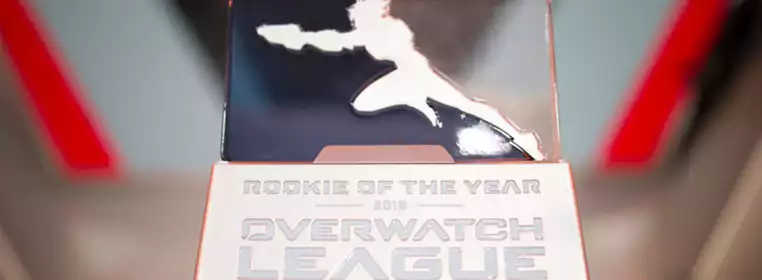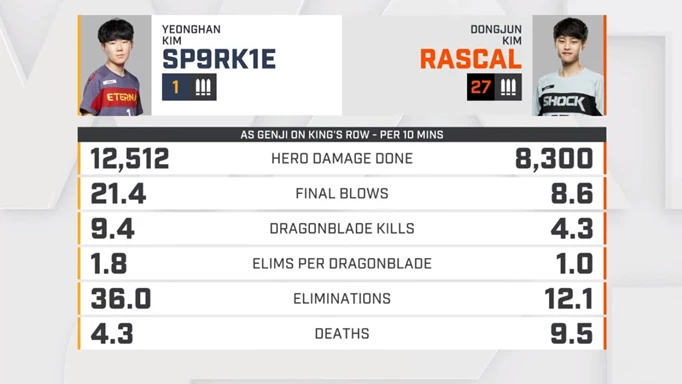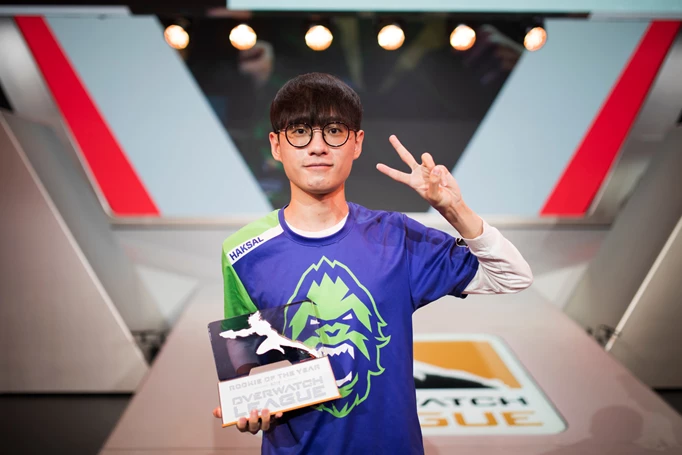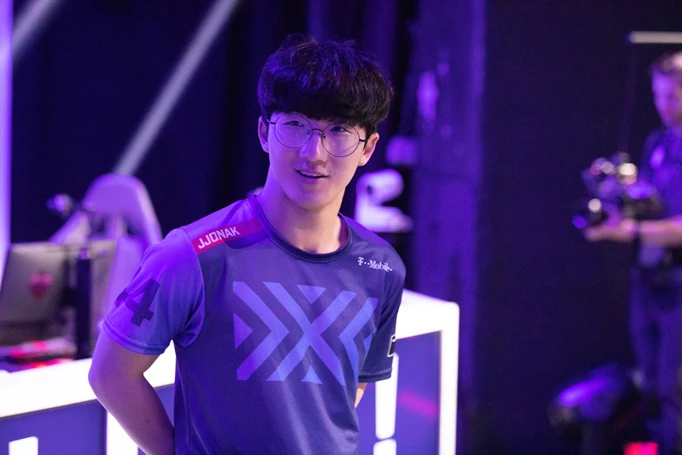Overwatch - A ''Rookie’s'' Game

Just over a month ago Yeong-han "Sp9rk1e" Kim turned 18, gaining eligibility to play in the Overwatch League. Yesterday, he won the final against the Philadelphia Fusion with a superstar performance. Accompanied by four other rookies in Han-been "Hanbin" Choi, Ki-hyo "Xzi" Jung, Brice "FDGod" Monsçavoir and Joon "Fielder" Kwon, it took sp9rk1e 36 days to break San Francisco Shocks streak of having clinched every single final since the start of season 2. For sp9rk1e, it was his first try at a grand final in the Overwatch League.
With this, the four rookies of Paris Eternal have lapped the seasoned core of the Philadelphia Fusion in Overwatch League trophies. Big-game experience, veteran cool and consistent class over the years meant little yesterday. In this league, rookies can hit the ground running at eye level with the best in the game. In this league, Anakin would have been slaughtered by the younglings.
And this isn’t normal. No matter where you look, the level of success of rookies in the Overwatch League (the first tier of Overwatch competition) is almost unprecedented. In sports like soccer or basketball, players are expected to peak several years into their career, around the age of 27. Though notable exceptions exist, you usually grant talent in CS:GO or League of Legends a couple of years until you expect them to come into their own. Not so in Overwatch. Why is that?

 Click to enlarge
Click to enlargeBy the old gods and the new
In Overwatch League, the discussion around who is MVP material and who deserves to be Rookie of the Season is often indivisible. Players like FDGod, LeeJaeGon, Lip, Alarm, Yaki, Ans, Cr0ng and more could feasibly make both lists without a stretch. With only an estimated half of the MVP candidates coming from players who already competed last season, we’ve arrived at a point where the trophy has reached the almost the same level of prestige as the MVP trophy. A consideration for the rookie award which in other scenes is meant to encourage developmental talent and tell them “one day, you might have a chance to play ball with these superstars” has morphed into a badge of “you’re among the best and probably underpaid!” in Overwatch.
The Rookie of the Season is talked about just as much as the MVP, with the division made seemingly in an effort to compartmentalize the absurd amount of outstanding players we’ve seen this season. There’s just so many so let’s put the rookies in this basket to make it a manageable conversation.
In some ways, the MVP trophy now feels more like an accolade reserved for those veteran players which have managed to stick around for several years. Engraved on the trophy stands the implied message: Congratulations, boomer. You’ve made it through the wild ride that is Overwatch League for several years and somehow you managed to find a source of will power within you that allows you to keep up with a horde of hungry rookies. How’s the old back doing?
Why are rookies just so good?
From semantic headscratchers to an ever-changing game, many of the reasons one could speculate on to be the big factors as to why rookies don’t require much wind-up are imposed by the competitive structure that Overwatch operates in. The very definition of a rookie, a player that enters the top tier competition for the first time, is often dysfunctional in Overwatch esports and its existence remains justified on razor’s edge.

 Click to enlarge
Click to enlargeWhat’s a rookie really?
Overwatch League be like “I know a rookie” and will show you Hyojong "Haksal" Kim, a player who has been among the best in the world before the league was even a thing. Part of the reason why rookies break the door down when they enter OWL is that they are only considered rookies by a stubborn semantic power move to elevate the Overwatch League from developmental leagues like Contenders and prestigious tournaments like OGN’s APEX of 2017. In reality, we’ve seen on many occasions that the difference between top tier Contenders teams and everyone but the top tier of Overwatch League is negligible.
How meaningful is the rookie label when a Korean-seasoned roster like RunAway, who had been competing alongside each other for years before joining the Vancouver Titans, can chime into the Overwatch League as a “rookie team” and take almost every team’s lunch money throughout an entire season?
Furthermore, the Titans largely succeeded due to their incredible gameplay and, through several grand finals losses, their hard-earned ability to remain cool in high-pressure situations like they demonstrated in stage 1 finals of season 2. Surely this should erode some of the mental barriers the Overwatch League tried to put up between Tier 1 and Tier 2 of Overwatch. The Element Mystic core in the Paris Eternal finding success this early into their progression should erase any further doubts.
In conclusion, the value of the term “rookie” in the Overwatch League is practically devalued because second-tier competitions aren’t as far off from the highest tier as the system tries to make you believe. Moreover, many of the past rookies started their career in a time when Overwatch League wasn’t around, and thus had already competed at the highest tier available in 2017.
- Read more: Yaki - The Last APEX Hunter
When sifting through Overwatch history, the only sensations of rookie moments this scene has been able to give me were the royal road run of GC Busan in APEX season 4 and the astronomic rise of Jjonak in the inaugural season. Has any other event in Overwatch really scratched the itch for a true rookie moment for you? I’m sitting in a mosquito swarm here.

 Click to enlarge
Click to enlargeDate & Gatekeepers
In the vast majority of cases, outstanding players like Haksal and sp9rk1e were known entities before joining the Overwatch League and only in the fewest of cases players deemed exceptional talent in the Contenders season before joining the big league failed to deliver in their first season. Mostly held back by the age limitation of having to turn 18 by a certain date of the season, the adapt viewer joins the queue for the waiting room of these little giants’ arrival. I see a lot of you in line with me for Proper, Na1st, Patiphan & co. Once these prodigies are allowed to compete, they’ve already reached gameplay maturity in Contenders, not least due to the accessibility of great coaching and Overwatch League scrims to top tier Contenders teams.
Sometimes, though admittedly much less so in recent times, talent is barred by more than just an age limitation but instead by a collective oversight of scouts. Without their approval, the Overwatch franchised system, with no relegation or promotion, will not let you enter. You could win every single match that’s available for you to compete in within the tier 2 system and you still wouldn’t be guaranteed an Overwatch League contract. Arguably, the European scene has suffered the most from this over the years, with notable names like Davin, AFoxx, Dannedd and more at the whims of General Manager estimations. Due to that mild inefficiency in scouting and the lack of natural progression, the talent pool in Contenders is naturally elevated in comparison to other scenes.
An ever-changing game
The other implication of a league without relegation is that there is no inherent pressure to perform, and as such, little natural selection is taking place. This is especially devastating to a team’s performance when a game changes as frequently and severely as Overwatch. While Contenders sorts through the line’s of talent through unforgiving “put up or shut up” competitions with a higher amount of iterations, the players that can not adapt quickly enough to remain competitive in the new game state fall through much more quickly, cutting the fat off at a much faster rate. In this regard, Overwatch League is WWE, Contenders is Takeshi’s castle. You know whoever won the latter was basically superhuman.
As a thought experiment to understand this point better, think about just how quickly active players from the dive meta in 2018 that then didn’t adapt well in GOATs were filtered out in Contenders in comparison to Overwatch League. Whoever emerges victorious from the cut-throat environment of Contenders has almost certainly proven their talent. Overwatch League teams in comparison moved at snail pace, weighed down by long contract durations, uncertainty how well their players would adapt and without much stress-testing in the off-season. Teams like the Houston Outlaws, though admittedly hindered by an inability to make signings other than Danteh in season 2, have still not signed a rookie in their franchise history, forced to ride old horses until they collapse.
The most important aspect of the ever-changing tides of the Overwatch meta comes from the constant devaluing of experience through the partial redefinition of what it means to be good at Overwatch. Answer me this: how important was Carpe’s experience as an otherworldly Widowmaker that he gained through season 1 in the GOATs meta of season 2? Do you think the rookie that got to play GOATs in Contenders was better prepared? Just how valuable is the lack of experience a rookie description implies in this context?
While other esports games allow players to continuously hone their skills in one direction they can trust to still be relevant a year later and therefore gain distance on rookies in their respective scenes, the soft resets of the required skillsets in Overwatch asks one simple question at the start of every severe meta switch: “are you ready to start from zero and grind till you drop?” Who do you think is more inclined to prove themselves under these circumstances, a rookie or a veteran?
Whoever emerges from the hardship of tier 2 as a top talent has almost certainly displayed qualities that should see them as plug and play for the majority of teams. Rookie, MVP. MVP, Rookie. Same difference.
Images via Blizzard Entertainment
